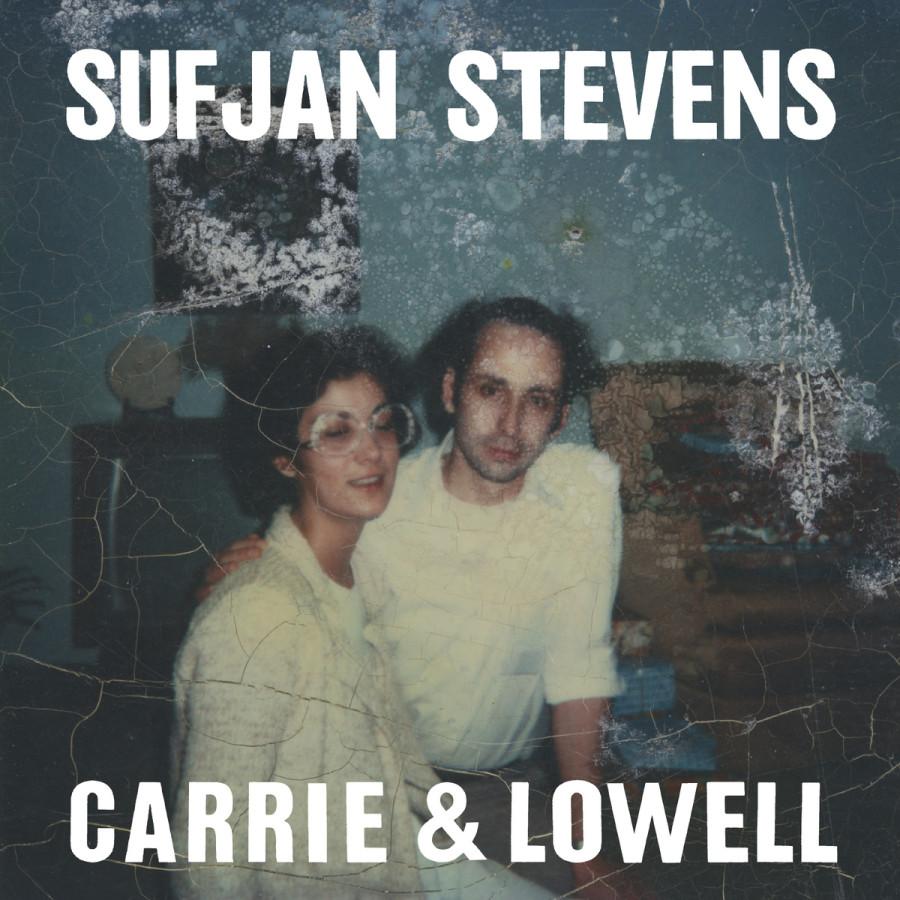Sufjan Stevens’ “Carrie and Lowell” is his best yet
April 8, 2015
Sufjan Stevens’ “Carrie and Lowell” explores a new medium of musical artistry. Lyrics of anguish and loss combined in a fog of soft guitar and minimal production noises make up the album, named for his stepfather and bipolar and schizophrenic mother who passed on in 2012. Combining haunting melodies with calming production while reminiscing on dark times and entering into twisted landscapes, Stevens ties pretty guitar riffs and quiet sounds to his whispering voice in order to tell stories of his mother and the aftermath of her death and the imprint she left on his life.
The album is a narrative, detailing Stevens’ life with his mother. Songs like “Carrie & Lowell,” “Eugene,” and “All of Me Wants All of You” mention summer trips to Oregon that Stevens made with his mother, stepfather and brother. Within these songs are specific references to childhood memories and times in which he felt closest to his mother.
Contrasting the positive, Stevens also composed multiple songs on this album focusing on the effect this death had on his adult life. In “Should Have Known Better” he mentions his own drinking and drug abuse, his experience in disconnected relationships, and the imminent self-loathing and emptiness he felt, shown when he sings, “In a manner of speaking I’m dead.” Delving deeper into the darkness, Stevens references suicidal thoughts and the constant longing he felt to be closer to his mother. This desperation, while referenced in the lyrics, is clearest in the music itself. Stevens’ voice swims in and out of waves of quiet piano and soft guitar strumming, and his whisper building to falsetto sounds like a cry for help.
“Death with Dignity” and “Blue Bucket of Gold” are two songs that illustrate this. “Death” starts off the album with the quiet plucking of guitar strings and melodic coos illuminating the background. Stevens’ voice is both killing and calming, and the song starts off the album by luring in listeners.
Following suit is “Blue Bucket of Gold,” which begins with a steady note being played on the piano and layered voices telling a story from the past. With little production, this song stands alone, with Stevens voice layered over itself adding extra power to a quiet history.
In most songs, Stevens’ best tool is his brazen lyrics. While the music, flecked with piano, some synthesizers, background harmonies, and some unidentifiable clicking sounds may say one thing, his lyrics tell the true story. “Fourth of July,” tells the story of his mother’s death, and while beautiful and picturesque images of the day itself are shared, the phrase “We’re all gonna die” is repeated frequently, contrasting fond moments with imminent ideas, seemingly portraying the thoughts in Stevens’ mind. Similarly, in “No Shade in the Shadow of the Cross,” Stevens declares that he’s “falling apart,” an honest statement which punctures the soothing motion of the song itself.
While Stevens has experimented with music most of his career, his personal connection to “Carrie & Lowell” makes it a standout. The emotion in his performance is evident and inescapable in a way that isn’t imposing or intense, but instead comforting and accessible. His opinions on life and death are presented beautifully in this precise and stirring tribute to his mother.



